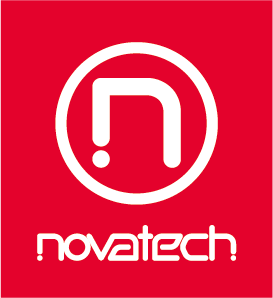Differing Server & Storage Needs in Higher Education
Often, your project’s unique requirements will mean off-the-shelf hardware is out of the question. One size doesn’t fit all, so your research needs to be powered by a server which meets your specific needs. This can prove challenging for institutions and departments with financial constraints, but the right supplier should work within your budget to build a solution which works for you.
Because the aims of every research project differ so vastly, it’s imperative that your chosen supplier has experience working with different requirements, including performance, speed, capacity and redundancy.
We’ve worked universities on a variety of projects, from running powerful simulations and handling large volumes of data to deep learning and hosting virtual environments.
University of Southampton
Conversation
We recently worked with the University of Southampton’s µ-VIS X-ray Imaging Centre to build a server for microfocus Computed Tomography, in which cross-sections of a physical object are created non-destructively and used to generate virtual 3D models.
Their core requirement was speed. They were facing bottlenecks in their visualisation workflow and knew a standard server wouldn’t be able to solve this issue; rather, they’d need something non-traditional to bring the level of performance they needed.
Collaboration
We opted for a novel SupremeRAID™ solution, in which GPUs are used instead of legacy RAID cards. As well as utilising data redundancy for secure storage, this solution offers incredibly high levels of performance, reducing latency and increasing efficiency in demanding workloads.
Confidence
The server we built is able to reach up to 20GB/s local sequential write (that’s 4x faster than SSDs currently available on the market) solving previous delays in their workflow and increasing overall performance.
University of Dundee
Conversation
The University of Dundee were looking to keep a large amount of valuable research data secure, and needed a solution which would fit their budget. We’d recently worked on a similar project with the UK’s largest non-metropolitan police force, so we knew we’d be up to the challenge. We reviewed Dundee’s IT policy and any potential limitations, to ensure they would receive the best solution for their needs, within their budget and existing frameworks.
Collaboration
We designed a custom server- a redundant archival system using a Zettabyte File System (ZFS) to guarantee data integrity. Use of RAID-Z3 allows for up to three disk failures per pool, providing extra safety. ZFS is also highly scalable, and pools can easily be changed in size to accommodate a growing need for more storage.
Senior Researcher Mark Nakasone described this server “a fast and secure petabyte scale storage system” which allows him and his team to “process multi-terabyte sets”.
Confidence
We flew up to Dundee to deliver their new solution, installing the server and configuring connectivity with a 10GB networking switch. We had a great time with the project team during our visit!
Our server solution will now help researchers at Dundee safely store their valuable contributions to the field of targeted protein degradation. Mark believes it was “an ideal solution” for the “constant issue” of data storage which arises in his field. He stresses “reliability, ease of use, data independence,” speed, value for money, and flexibility as the main benefits to his research.
Closing thoughts
No matter the project, you’ll have a time frame and a budget in mind. A reliable IT partner will work with you to discuss these specific project requirements, expertly design a server solution which meets your needs, and supply it on time, within your budget.
If you'd like to learn more about how we delivered these solutions on time and on budget, get in touch for a chat with one of our specialists. We'd love to chat with you about what we do and similar projects we've worked on within your industry.

